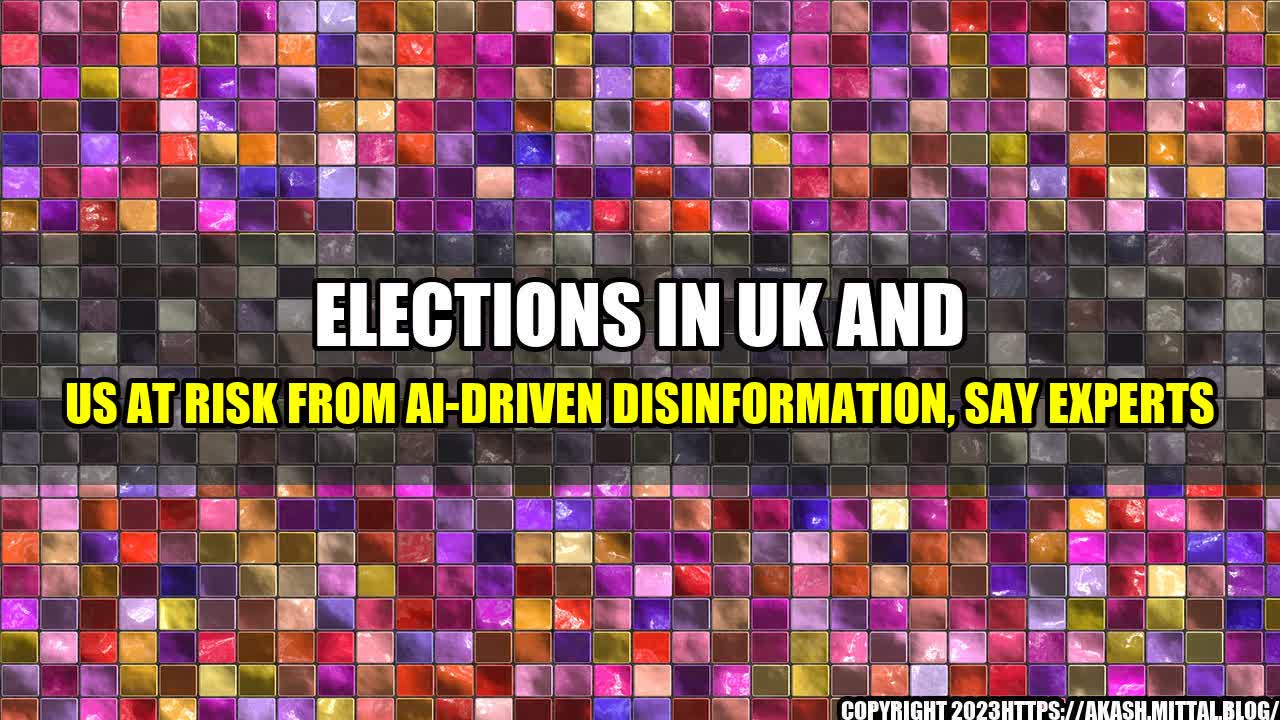
As the world becomes more and more digitized, election campaigns are being conducted online, and artificial intelligence (AI) is increasingly being used to spread disinformation and sway public opinion. Experts warn that this trend poses a significant threat to the integrity of elections, both in the UK and the US. In this article, we'll explore how AI-driven disinformation is impacting elections and what we can do about it.
AI is playing an increasingly important role in the spread of disinformation. Today's AI algorithms are capable of producing highly realistic fake news articles, photos, and videos that are indistinguishable from genuine content. These tools are being used by both foreign governments and domestic political campaigns to spread false information and manipulate public opinion.
What makes AI-driven disinformation particularly effective is that it can be tailored to an individual's interests and beliefs. Algorithms can monitor a person's online behavior and use this data to create and distribute content that is most likely to influence them. This targeted approach can be especially effective in swaying voters in key swing states, and even a small number of voters can make a significant difference in an election.
Moreover, AI can also be used to create deepfake videos and images, which are often used to misrepresent public figures and politicians. This can lead to a loss of trust in political figures and institutions, which in turn can undermine the democratic process.
There are numerous examples of AI-driven disinformation that have had a significant impact on recent elections. For example:
In both of these cases, the use of AI was a primary factor in the dissemination of disinformation and the manipulation of public opinion.
The threat of AI-driven disinformation is very real, and it is clear that action needs to be taken to protect the integrity of elections. There are several steps that can be taken:
The use of AI to spread disinformation poses a significant threat to the integrity of elections in both the UK and the US. However, by investing in AI-based tools, regulating the use of AI in political campaigns, and building public awareness and resilience to disinformation, we can help to protect the democratic process and ensure that elections remain free and fair.
Reference URLs:
Hashtags:
Article Category: Technology/Politics/Elections
Curated by Team Akash.Mittal.Blog
Share on Twitter Share on LinkedIn